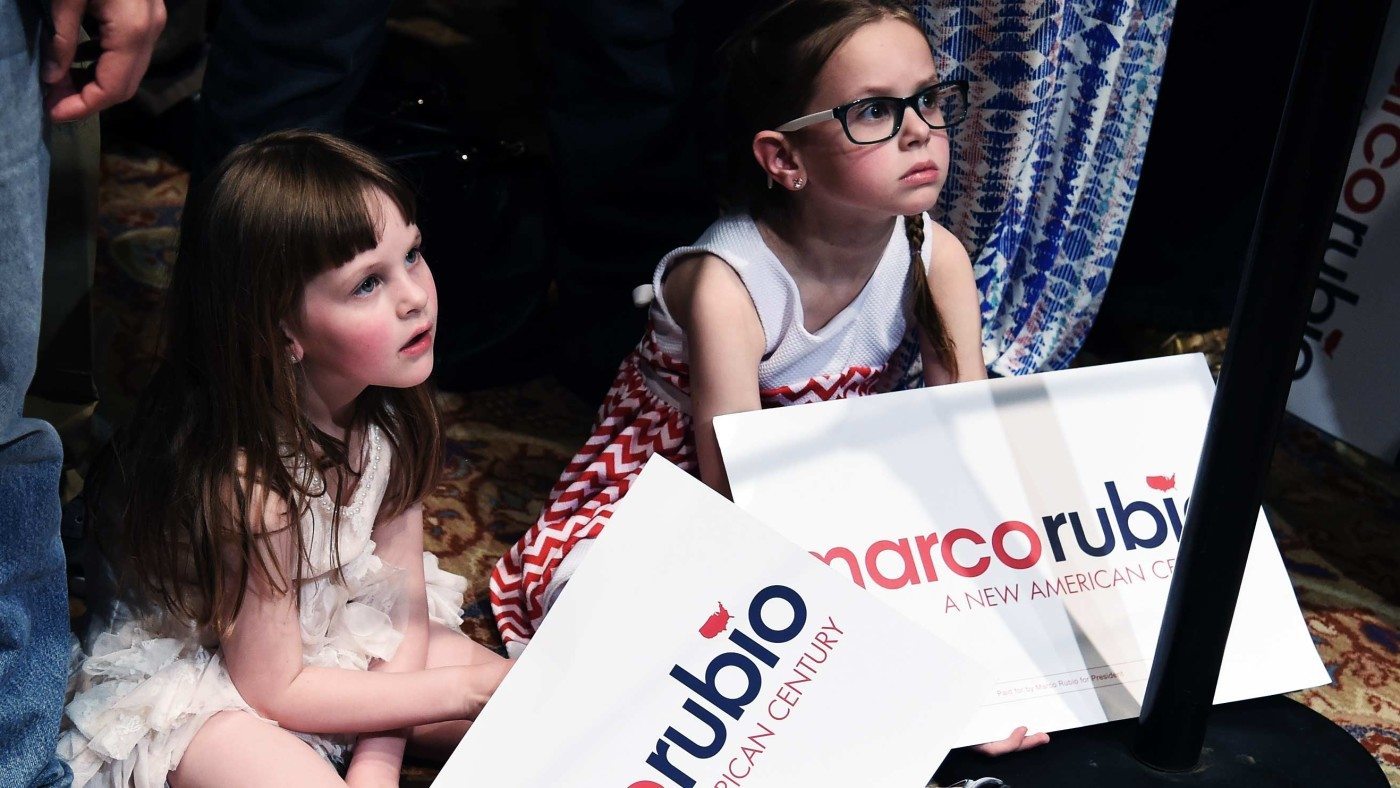With the departure of former Florida Governor Jeb Bush from the Republican race, three candidates are vying for the nomination. Who will come out on top?
Supporters of Senator Marco Rubio should not conclude that Senator Ted Cruz is stumbling because of accusations of dirty tricks and the firing of his communications director. Cruz is second in the RealClearPolitics average of national presidential polls, at 21 percent, and Rubio is third, at 16 percent. Both are vying to unseat real estate mogul Donald Trump, who leads with 34 percent. And on Tuesday night, Trump scored a big win in the Nevada caucuses, taking 45.9% of the vote, to Rubio’s 23.9% and 21.4% for Cruz.
But it is not over. Trump and Cruz have extensive support and as primaries move to more centrist states, Rubio’s message may win over supporters of former candidates, such as Bush and New Jersey Governor Chris Christie. With 65 percent of Republicans not voting for Trump, the question is whether Rubio can snare a larger share than Cruz.
In this fight, Rubio has a major advantage: people like him. In the latest Quinnipiac poll, taken earlier this month, Rubio had the lowest unfavorable ratings of the three top Republican candidates. Only 7 percent of respondents said “they would definitely not support [him] for the Republican nomination for president,” compared to 30 percent for Trump and 15 percent for Cruz.
Cruz is trying to move to Number 1 by being angrier than Trump. But it’s hard to out-anger Trump, because Trump is so strident, and this makes Cruz come across to some as abrasive.
Rubio has another advantage, a record of achievement.
Take Obamacare, for instance. Republican candidates say they want to repeal it, but Rubio is the only one who has dealt the program serious blows. In 2014 and 2015 Rubio opposed spending federal money to bail out the health-insurance companies on the new exchanges. They are in poor financial shape because more unhealthy than healthy people are signing up. Last October, due to Rubio’s efforts, the Department of Health and Human Services gave $362 million to the losing insurance companies, rather than the $2.9 billion that they requested. Similar limits will hold this year.
Sure enough, after the Department announced that companies would receive only $362 million, UnitedHealth Group, covering 550,000 people on the exchanges, said it may withdraw. UnitedHealth’s action follows the closure of numerous health-care cooperatives, such as Health Republic Insurance of New York (150,000 members) and CoOportunity Health in Iowa and Nebraska (120,000 members). If there are no insurance companies on the exchanges, Obamacare will disappear.
Rubio has correctly identified upward mobility as the foremost political issue of our time, and come out with a robust portfolio of solutions laid out in his book, American Dreams, including allowing private investors to fund college tuition in exchange for a share of a student’s future income.
Until now, Democrats have practically monopolized advocacy for the lower and middle classes, successfully framing Republicans as hired guns for Wall Street bankers. With the latest economic growth and employment numbers stymied by static wages and reports of declining economic opportunity, Rubio has the perfect populist pitch to energize the Republican base and win over constituencies that traditionally favor Democrats.
Some criticize Rubio for his so-called lack of experience. But Rubio was speaker of the Florida House of Representatives before coming to Washington, making him one of the most powerful men in one of the most populist states. He has co-sponsored major bills, such as immigration reform, and spearheaded a message of policy change.
Rubio is the anti-Hillary. He can attack her for her scandals that took place long before he or his family was in Washington. He can blast her for being a 20th-century candidate, out of touch with contemporary issues. Rubio can win the general election because he will draw the biggest contrast. Trump and Cruz are formidable candidates, but Republicans would be wise to choose Rubio as their nominee.


